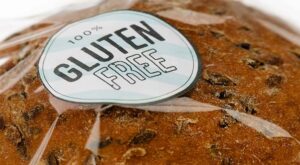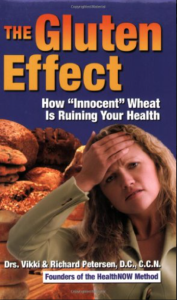Why Some Gluten-Free Foods Are Bad For You – [Video]
Summary
What you will learn about
While gluten-free foods are necessary for individuals with celiac disease or non-celiac gluten sensitivity, it’s important to acknowledge that not all gluten-free foods are inherently healthy. Here are a few reasons why gluten-free foods can sometimes be less healthy.
- Nutritional deficiencies: Gluten-free products often use alternative ingredients, such as refined flours (rice, potato, tapioca), to mimic the texture and taste of gluten-containing foods. These substitutes may lack essential nutrients like fiber, iron, and B vitamins, which are commonly found in whole grains. It’s crucial to choose gluten-free products that are enriched or fortified with these nutrients or incorporate naturally gluten-free whole foods like quinoa, amaranth, and buckwheat into your diet.
- Higher sugar and fat content: Gluten-free products frequently contain higher amounts of sugar, unhealthy fats, and additives to enhance taste, texture, and shelf life. Consuming these products excessively can lead to an increased intake of calories, unhealthy fats, and added sugars, which may have negative effects on overall health, such as weight gain, elevated blood sugar levels, and increased risk of chronic diseases.
- Lack of variety and processed nature: Relying heavily on processed gluten-free foods can limit the variety and diversity of your diet. It’s important to balance gluten-free alternatives with a wide range of whole, unprocessed foods like fruits, vegetables, lean proteins, legumes, and nuts to ensure optimal nutrition and overall well-being.
Gluten-free diets are essential for individuals with diagnosed gluten-related disorders. If you suspect gluten sensitivity or are considering a gluten-free diet, consult with our registered dietitians-nutritionists who can provide appropriate guidance and support. They can help ensure you’re meeting your nutritional needs and make informed choices about gluten-free options that are healthier and more balanced.
Transcript of the video
By Dr. Vikki Petersen

So even if — let’s go back to before you knew you couldn’t eat gluten — if you ate cookies, donuts, and white bread, you’re kind of part of the standard American diet, but these are not good foods for you. These highly enriched, overprocessed — they say enriched on the label, they say fortified… That’s because they stripped all the good nutrients out of them and then put them back in a terrible form that’s not really adaptable to health and not able to be absorbed very readily.
They’re so overprocessed and hyper palatable, you’re very addicted to them and you want more, and they tend to create a lot of inflammation. That’s not good for anyone.
So when they take the white bread and find a gluten-free alternative that’s got potato starch and tapioca and rice flour, all very highly processed — and they make a white bread, and you’re like “oh, I’ve got my white bread back!” You don’t want your white bread back. Okay? You have celiac disease; you have non-celiac gluten sensitivity; you need to regain your health. You need to decrease inflammation. You need to restore health to your immune system.
This is not going to occur with these junk foods. It’s not good for anybody, even if someone wasn’t reacting to gluten at all. We say to stay away from the gluten-containing version of those foods. The fact that manufacturers have cleverly made the gluten-free Oreo, the gluten-free white bread, and the gluten-free donut… that’s nice maybe for your birthday and you’re just want it cheap, okay? And there’s all these cake mixes and cooking mixes and things you can do once or twice a year. Fine.
But these can’t be part of your daily diet if you expect to heal, especially as a celiac or someone that has gluten-sensitivity. So please keep these for very special occasions.
Don’t start eating these highly processed, full-of-sugar foods just because they’re gluten free. That doesn’t make them healthy. It just makes them gluten-free.
If you’re struggling with celiac disease, if you’re struggling to know if you’re reacting to gluten or not, please reach out. That’s one of our specialties.
About Root Cause Medical Clinic and its Nutritional Programs
Root Cause Medical Clinic in Clearwater, FL is a pluri-disciplinary team of doctors and registered dietitians-nutritionists treating medical conditions using the Root Cause Medicine approach: we don’t mask symptoms with drugs, we target the factors depressing your body’s ability to heal itself. Our nutritional programs are individually designed to accelerate healing and avoid the reoccurrence of what caused the disease in the first place. They include gluten-free recommendations.
Additional resources
Dr. Vikki penned “The Gluten Effect: How ‘Innocent’ Wheat is Ruining Your Health” in 2009. As the book says it: “Is Your Food Poisoning You? Exhaustion, obesity, digestive problems, headaches and depression: If you suffer from any of these symptoms the cause might well be found in what’s on your plate. Yes, it could be the food you eat. Specifically, the problem may be gluten, a protein found in wheat, rye and barley that is emerging as a key factor behind a variety of health problems affecting millions of Americans.” You can find The Gluten Effect book on Amazon.


